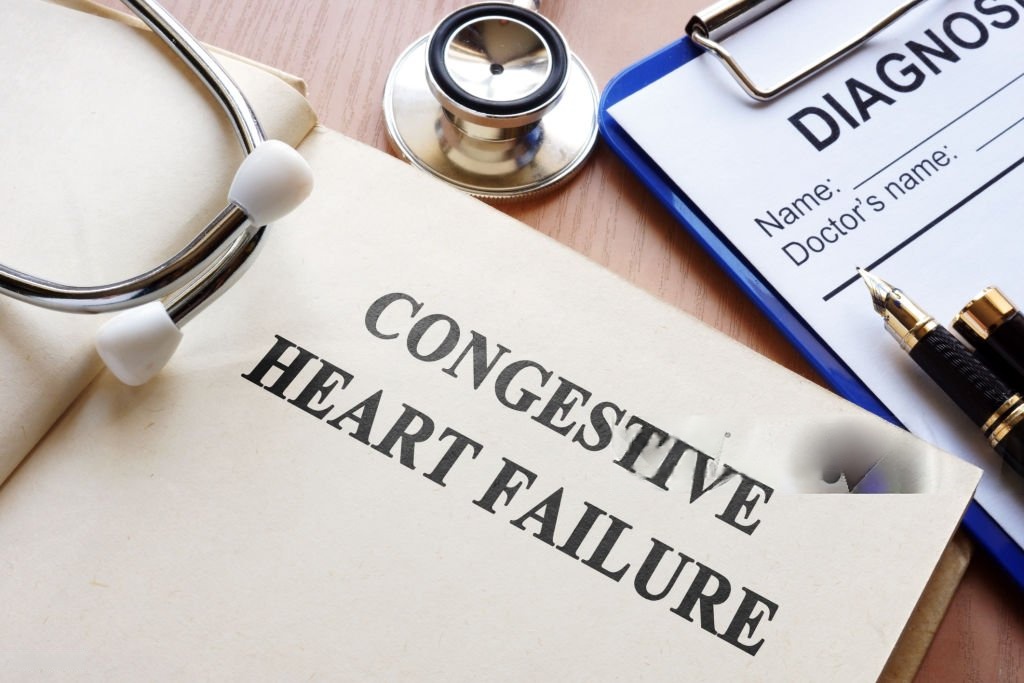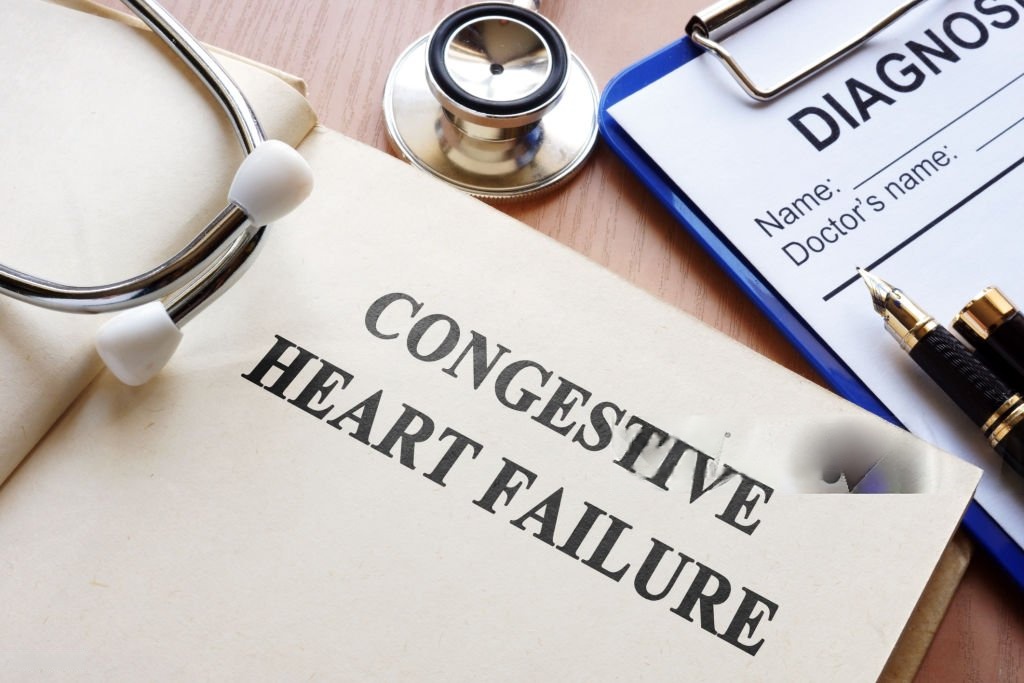What Are the Common Symptoms of Congestive Heart Failure?
Congestive heart failure (CHF) is a serious medical condition where the heart struggles to pump blood effectively, leading to a buildup of fluid in the body. This condition affects millions of people worldwide and requires timely diagnosis and management to improve quality of life.
Understanding the common symptoms of congestive heart failure is crucial for early detection and seeking expert care from the best cardiologist in Hyderabad, such as Dr. Raghu, who specializes in treating complex heart conditions like CHF and coronary artery disease.
In this article, we’ll explore the symptoms of congestive heart failure, its causes, risk factors, and why consulting a specialist is essential for effective management. If you or a loved one are experiencing any of these symptoms, don’t delay—book an appointment with Dr.
Raghu for expert evaluation and personalized care.
Understanding Congestive Heart Failure

Congestive heart failure occurs when the heart muscle becomes weakened or damaged, impairing its ability to pump blood efficiently. This leads to fluid buildup in the lungs, legs, and other parts of the body, causing a range of symptoms. CHF can result from various underlying conditions, with coronary artery disease being one of the leading causes. Coronary artery disease involves the narrowing or blockage of the arteries that supply blood to the heart, reducing its ability to function properly.
While CHF is a chronic condition, early diagnosis and proper treatment can significantly improve outcomes. Recognizing the symptoms early is key to preventing complications and managing the condition effectively.
Common Symptoms of Congestive Heart Failure
The symptoms of congestive heart failure can vary in severity and may develop gradually or appear suddenly. Below are the most common signs to watch for:
Shortness of Breath
One of the hallmark symptoms of congestive heart failure is shortness of breath, especially during physical activity or when lying down. This occurs due to fluid buildup in the lungs, which makes it harder for oxygen to reach the bloodstream. Patients may feel breathless even during routine tasks like walking or climbing stairs. In severe cases, shortness of breath can occur at rest or wake a person from sleep (a condition called paroxysmal nocturnal dyspnea).
Persistent Fatigue and Weakness
People with CHF often experience extreme tiredness or fatigue, even after minimal exertion. This happens because the heart is unable to pump enough oxygen-rich blood to meet the body’s energy needs. Fatigue may interfere with daily activities and is often accompanied by a general feeling of weakness.
Swelling (Edema)
Fluid retention is a common symptom of congestive heart failure, leading to swelling in the legs, ankles, feet, or abdomen. This swelling, known as edema, occurs because the heart’s reduced pumping ability causes fluid to accumulate in the body’s tissues. Edema is often more noticeable at the end of the day or after prolonged sitting or standing.
Rapid or Irregular Heartbeat
A heart struggling to pump blood effectively may beat faster to compensate, leading to palpitations or an irregular heartbeat (arrhythmia). Patients may feel their heart racing or pounding, which can be distressing. Arrhythmias in CHF require careful monitoring by a cardiologist to prevent complications.
Persistent Cough or Wheezing
A chronic cough or wheezing, often accompanied by white or pink-tinged phlegm, can be a sign of fluid buildup in the lungs. This symptom is particularly common in CHF patients and may worsen when lying down or at night.
Weight Gain Due to Fluid Retention
Sudden or unexplained weight gain, even without changes in diet or activity, can indicate fluid retention caused by congestive heart failure. This is often linked to edema and may be accompanied by bloating or a feeling of heaviness in the abdomen.
Difficulty Concentrating or Confusion
Reduced blood flow to the brain due to CHF can lead to cognitive symptoms such as difficulty concentrating, memory problems, or confusion. These symptoms are more common in older adults and may be mistaken for other conditions if not evaluated by a specialist.
Chest Pain
While chest pain is more commonly associated with coronary artery disease, it can also occur in congestive heart failure, especially if the underlying cause is related to blocked arteries. Chest pain in CHF may feel like pressure, tightness, or discomfort and should never be ignored.
Reduced Appetite or Nausea
Fluid buildup in the abdomen can press on the stomach and intestines, leading to a reduced appetite, nausea, or a feeling of fullness. This symptom can contribute to unintentional weight loss in some CHF patients.
Frequent Urination at Night
Some patients with congestive heart failure experience an increased need to urinate at night (nocturia). This occurs as the body attempts to eliminate excess fluid accumulated during the day.
Causes and Risk Factors of Congestive Heart Failure
Congestive heart failure can develop due to various factors that weaken or damage the heart.
The most common cause is coronary artery disease, which restricts blood flow to the heart muscle, leading to damage over time. Other causes include:
- High Blood Pressure (Hypertension): Forces the heart to work harder, weakening it over time.
- Heart Attack: Damages the heart muscle, reducing its pumping ability.
- Cardiomyopathy: A disease of the heart muscle that affects its structure and function.
- Heart Valve Problems: Malfunctioning valves can strain the heart.
- Diabetes: Increases the risk of heart disease and CHF.
Obesity and Sedentary Lifestyle: Contributes to heart strain and coronary artery disease.
Risk factors such as smoking, excessive alcohol consumption, a family history of heart disease, and chronic stress also increase the likelihood of developing CHF. Addressing these risk factors through lifestyle changes and medical management is critical for prevention and treatment.
When to Seek Medical Attention?
If you experience any of the symptoms mentioned above, especially shortness of breath, chest pain, or sudden swelling, it’s essential to consult a cardiologist immediately. Early diagnosis and intervention can prevent the progression of congestive heart failure and improve your quality of life.
Dr. Raghu, recognized as one of the best cardiologists in Hyderabad, specializes in diagnosing and treating complex heart conditions like congestive heart failure and coronary artery disease. With years of experience and a patient-centered approach, Dr. Raghu offers advanced diagnostic tools and personalized treatment plans to manage CHF effectively.
Diagnosis and Treatment Options
Diagnosing congestive heart failure involves a combination of medical history review, physical examination, and diagnostic tests such as echocardiograms, electrocardiograms (ECG), chest X-rays, and blood tests. These tests help assess heart function and identify the underlying cause of CHF.
Treatment for CHF typically includes:
- Medications: Diuretics, ACE inhibitors, beta-blockers, and other drugs to manage symptoms and improve heart function.
- Lifestyle Changes: Adopting a heart-healthy diet, regular exercise, and quitting smoking.
- Medical Procedures: In severe cases, procedures like angioplasty (for coronary artery disease) or heart valve surgery may be necessary.
- Device Therapy: Implantable devices like pacemakers or defibrillators to regulate heart rhythm.
Dr. Raghu and his team at drraghu.com provide comprehensive care, tailoring treatment plans to each patient’s unique needs.
Why Choose Dr. Raghu for Congestive Heart Failure Treatment?
When it comes to managing congestive heart failure, choosing an experienced cardiologist is crucial. Dr. Raghu is renowned as one of the best cardiologist in Hyderabad, offering cutting-edge treatments for CHF and coronary artery disease. His expertise, combined with a compassionate approach, ensures that patients receive the highest standard of care.
Conclusin
Don’t let the symptoms of congestive heart failure go unnoticed. Early intervention can make a significant difference in your health and well-being. Book an appointment with Dr. Raghu today to receive expert evaluation and personalized treatment for congestive heart failure. Visit Dr. C Raghu website to schedule your consultation and take the first step toward better heart health.

